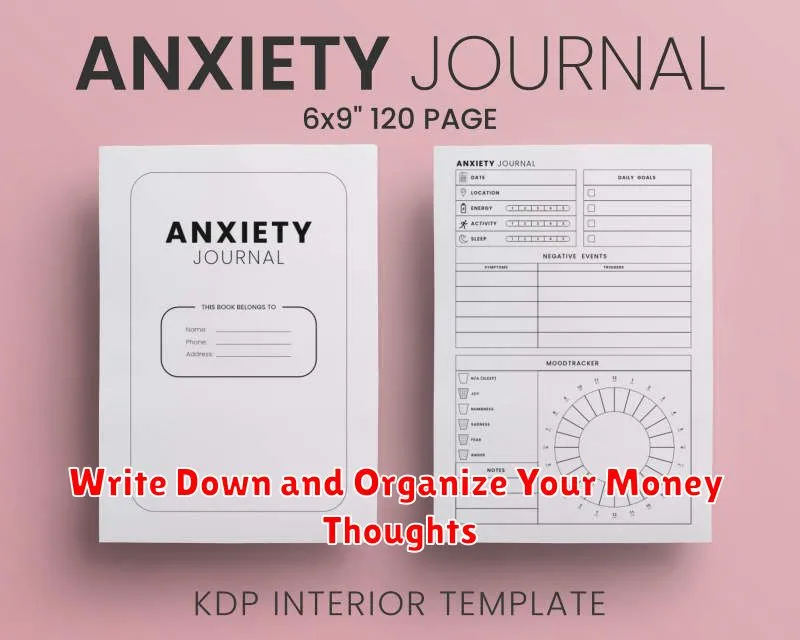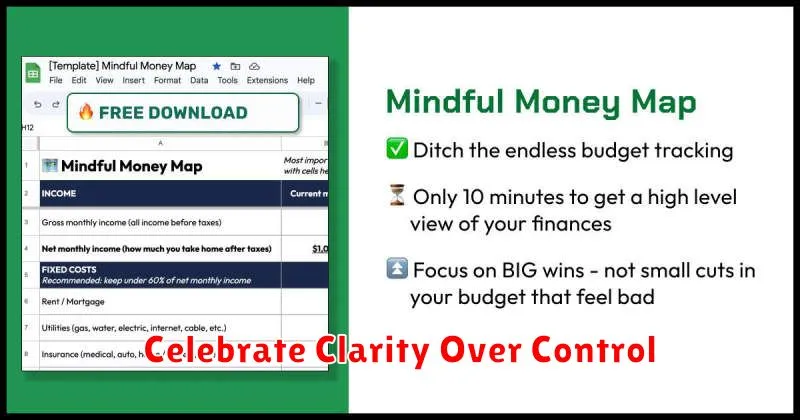Are you constantly plagued by financial anxiety? Do worries about money dominate your thoughts, impacting your sleep, relationships, and overall well-being? You’re not alone. Millions struggle with financial stress, but there’s hope. This comprehensive guide, “How to Deal With Financial Anxiety Day by Day,” provides practical, actionable strategies to manage your financial worries and reclaim your peace of mind. We’ll explore effective techniques to alleviate money anxiety, fostering a sense of control and empowering you to build a more secure financial future.
This article will equip you with the tools to navigate the daily challenges of financial insecurity. We’ll delve into creating a realistic budget, understanding your spending habits, and developing effective saving strategies. Learn how to tackle debt management, explore options for financial planning, and cultivate a healthier relationship with money. By implementing these daily practices, you can significantly reduce your financial anxiety and build a foundation for long-term financial wellness.
Recognize What Triggers Your Anxiety
Financial anxiety, like any anxiety, is often triggered by specific events or thoughts. Understanding your personal triggers is the crucial first step towards managing it. This involves paying close attention to your feelings and identifying the situations, thoughts, or even physical sensations that precede a surge in anxiety.
Common triggers might include receiving a bill you weren’t expecting, seeing your bank balance drop below a certain level, worrying about an upcoming major expense (like a car repair or medical bill), or simply thinking about your long-term financial security. However, your personal triggers might be unique to your circumstances. Perhaps a specific news story about the economy, a conversation about debt, or even a certain time of day exacerbates your feelings.
Keeping a journal can be incredibly helpful. Note down when you feel anxious about finances, what happened immediately beforehand, and the intensity of your feelings. Over time, patterns will emerge, revealing the specific situations or thoughts that consistently contribute to your anxiety. This increased self-awareness is a powerful tool in managing and ultimately reducing your financial stress.
Identifying your triggers doesn’t magically eliminate your anxiety, but it provides you with valuable insight. Once you know what sets off your anxiety, you can begin to develop coping mechanisms tailored specifically to those situations and work towards a more proactive and manageable approach to your finances.
Write Down and Organize Your Money Thoughts

Financial anxiety often stems from a lack of clarity and control. A crucial first step in managing this anxiety is to write down your thoughts and feelings about money. Don’t worry about being perfectly organized or analytical at this stage; simply let your thoughts flow onto paper or into a digital document.
Consider using prompts such as: “What are my biggest financial worries?”, “What are my financial goals?”, “What are my spending habits like?”, and “What triggers my financial anxiety?”. Journaling can be a powerful tool for identifying patterns and understanding the root causes of your stress.
Once you have a collection of your thoughts, begin to organize them. You can categorize your worries, goals, and spending habits. This process of categorization will help you see your financial situation more clearly and identify specific areas needing attention. For example, you might group worries related to debt separately from worries about future expenses.
This exercise in writing and organization isn’t just about documenting your feelings; it’s about gaining a sense of control. By externalizing your internal anxieties, you begin to transform abstract fears into concrete, manageable issues. This tangible representation of your financial landscape can be the first step towards developing effective coping mechanisms and strategies.
Remember to be patient with yourself throughout this process. It takes time to unpack complex emotions and develop a comprehensive understanding of your finances. The act of writing and organizing itself is a significant step towards managing your financial anxiety.
Avoid Overchecking Your Bank Balance
Constantly monitoring your bank balance can significantly exacerbate financial anxiety. The constant fluctuation of numbers, even minor ones, can trigger feelings of stress and worry, especially if your finances are already tight.
Instead of obsessively checking your account multiple times a day, set aside a specific time each week – perhaps on a weekend – to review your transactions and budget. This structured approach helps reduce the impulsive checking that often fuels anxiety.
Consider setting up automatic alerts for important transactions, such as low balances or large purchases, instead of constantly monitoring your account manually. This provides a sense of control without the overwhelming need for constant surveillance.
Remember that your bank balance is just a snapshot in time. It doesn’t fully represent your overall financial health, particularly if you have consistent income and reasonable spending habits. Focus on the bigger picture of your long-term financial plan rather than the daily fluctuations.
If you find yourself struggling to resist the urge to constantly check your account, consider seeking professional help. A financial advisor or therapist can provide valuable strategies for managing financial anxiety and develop healthier financial habits.
Break Down Big Money Problems into Small Tasks
Financial anxiety often stems from feeling overwhelmed by large, complex financial problems. A mountain of debt, a looming mortgage payment, or a significant unexpected expense can feel insurmountable. The key to managing this anxiety is to break these massive problems down into smaller, more manageable tasks.
Instead of focusing on the entire debt, for example, concentrate on making a single, small payment towards it. This could be as little as $10 or $20, depending on your budget. The accomplishment of making any payment, however small, provides a sense of progress and reduces the feeling of being hopelessly trapped.
Similarly, if you’re facing a large unexpected expense, break it down into smaller, achievable goals. Can you save $50 a week towards it? $25? Even small amounts, saved consistently, will accumulate and alleviate stress. Create a realistic budget to help you determine what you can realistically save or pay each week or month.
Another effective strategy is to create a checklist of action items. This provides a visual representation of your progress and helps you stay focused on the tasks at hand. Checking off each item, no matter how small, creates a sense of accomplishment and momentum, combating the feelings of paralysis that financial anxiety can cause. Prioritize tasks based on urgency and impact to manage your workload effectively.
Remember that dealing with financial anxiety is a process, not a race. Celebrate your small victories and be kind to yourself. Small, consistent actions over time will lead to significant progress in overcoming your financial challenges and reducing your anxiety.
Talk to Someone About Your Concerns
Financial anxiety can be incredibly isolating, making it difficult to know where to turn for help. However, talking to someone you trust is often the first crucial step in managing your worries. This could be a friend, family member, or a professional.
Sharing your concerns can provide much-needed emotional support and validation. Simply voicing your anxieties can alleviate some of the pressure you’re feeling. A supportive listener can offer a different perspective, helping you to identify practical solutions and challenge negative thought patterns.
If you feel your anxieties are overwhelming or impacting your daily life, consider seeking professional help. A therapist or counselor specializing in financial anxiety can provide guidance and tools to manage your stress effectively. They can offer coping mechanisms and strategies to help you regain control of your financial well-being.
Remember, seeking support is a sign of strength, not weakness. There are people who care and want to help you navigate this challenging experience. Don’t hesitate to reach out; it’s an important step towards regaining your financial and emotional equilibrium.
Celebrate Clarity Over Control

Financial anxiety often stems from a feeling of lack of control. We worry about unpredictable events, market fluctuations, and the general uncertainty of the future. However, focusing solely on controlling every aspect of our finances is both unrealistic and ultimately unproductive. It can lead to increased stress and even paralysis.
Instead of striving for complete control, which is often impossible, celebrate the power of clarity. Understanding your current financial situation – your income, expenses, debts, and assets – is a significant step towards reducing anxiety. This clarity provides a foundation for informed decision-making, even if you can’t predict every twist and turn.
Creating a realistic budget and tracking your spending are excellent ways to achieve this clarity. While you might not be able to perfectly predict future expenses, having a clear picture of your current spending habits empowers you to make conscious choices about how you allocate your resources. This conscious choice itself can be a source of calm amidst uncertainty.
Remember that flexibility is key. Life throws curveballs. Having a financial plan doesn’t mean rigidly adhering to it without adjustment. Instead, view your budget as a living document, regularly reviewing and adapting it to your changing circumstances. This adaptability reduces the feeling of being trapped by a rigid system and fosters a sense of empowered control.
By shifting your focus from the elusive goal of complete control to the achievable goal of financial clarity, you can cultivate a more peaceful and productive relationship with your money. This clarity allows you to make informed decisions, adapt to unforeseen events, and ultimately reduce the burden of financial anxiety.

